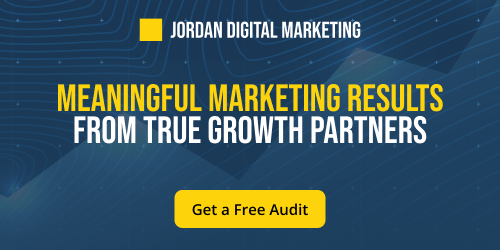Meta is making moves again—this time, encouraging advertisers to integrate Google Analytics (GA4) with their ad accounts. According to Search Engine Land’s recent coverage, advertisers who’ve already taken the plunge are seeing up to a 5% increase in conversions, thanks to better signal sharing and early access to new tools.
But what’s really going on here? Let’s unpack the potential benefits, limitations, and considerations for advertisers.
What’s Meta’s Agenda?
Let’s be real: Meta isn’t just being helpful. By encouraging GA4 integrations, Meta gains more data inputs that allow their algorithm to work smarter—not just harder. When advertisers share better signals through GA, Meta gets a clearer picture of what’s working and what’s not. That means more optimized campaigns, better performance, and yes, probably more ad dollars flowing into Meta as efficiency improves.
It’s a win-win—if it works the way they say.
Do You Still Need This if You Use a MMM Like Northbeam or Rockerbox?
Maybe, maybe not.
If you're using a marketing mix model (MMM) like Northbeam, Rockerbox, or Triple Whale, you’re already pulling in performance data across channels. These platforms offer a more holistic view of your customer journey and media mix attribution.
So why would Meta’s GA4 integration still matter?
Because this isn't just about reporting—it’s about feeding better signals back into the Meta platform. Even if your MMM provides better decision-making insight, connecting GA4 directly to Meta can improve in-platform optimization. And with Meta reporting a 5% lift from integrations, that’s worth testing, even if you already have an MMM in play.

What’s in It for Advertisers?
Meta claims that advertisers who’ve integrated with GA4 get early access to performance-boosting tools. While they haven’t released the full list, I suspect we’ll see:
- AI-powered creative tools
- Enhanced measurement capabilities
- Beta testing tools focused on conversions or creative testing
Essentially, more levers to pull—and potentially sooner than your competitors.
Should This Be Best Practice?
We’re leaning yes.
Meta’s pitch may be self-serving, but the concept isn’t wrong: the stronger your conversion tracking and signal-sharing setup, the better your campaigns will perform. As privacy regulations grow tighter and cross-platform measurement becomes more complex, ensuring your data flows seamlessly is essential for accurate attribution and better ad outcomes.
Any Reasons to Be Skeptical?
Only one major one: privacy.
Connecting Meta with GA4 opens up additional layers of data sharing—and that’s not a decision to take lightly. With privacy becoming more of a concern for both users and brands, advertisers need to be thoughtful about what’s being shared, who’s seeing it, and whether it aligns with user expectations and compliance standards.
If you’re in a highly regulated industry or already under scrutiny for data handling, weigh the potential performance gains against the reputational and compliance risks.
Meta’s push to integrate with GA4 is another step in its broader shift toward more data-driven, AI-enhanced advertising experiences. While it might feel redundant for brands already using advanced MMM platforms, the promise of stronger in-platform optimization, early access to tools, and better campaign results is hard to ignore.
If you’re still unsure, test it out. Start small, measure the impact, and make the call based on data—just like Meta wants you to.